Snapps.ai is a drag and drop website builder that offers the necessary tools you need to create an author website. This platform has tools like Snapps Widgets, which lets you drag-and-drop elements related to books, writing, and literature. Snapps also has personalization rules that you can use to inform website visitors and readers on regular updates. The personalization rule lets you select an icon like a “Notification” sign to direct visitors on the latest news they’ll receive from you. What’s great about Snapps is it offers different website templates for specific niches and industries.
Snapps courses are now available
Here are 7 best website builders for authors:
- Snapps.ai
- WordPress
- Wix
- Squarespace
- Ghost
- Dorik
- Weebly
Authors need to have a website in order to advertise their brand, increase readers, and so loyal readers know where to find them. Many readers can’t wait for regular updates on new book releases, so having a website’s a good idea. According to Jin and Co., an average author website gets 849 visits per month. Having an author website helps new readers to look for your book list once they get your website URL. Since readers rely on regular updates, keep all information up to date and establish a reachable social media presence.
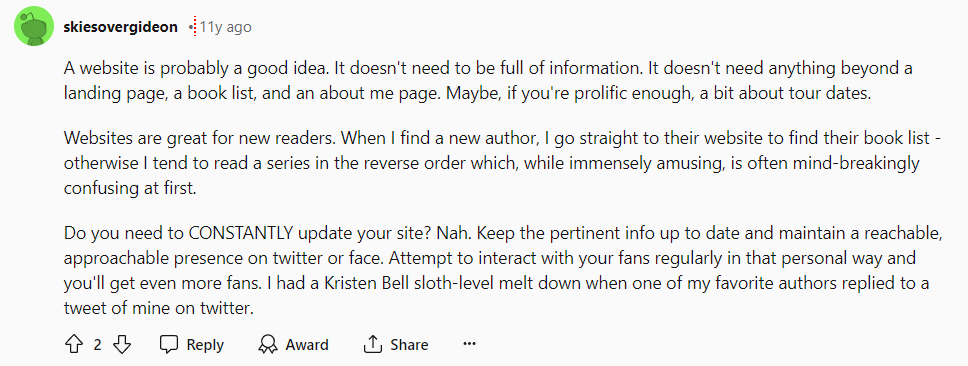
Your author website template says a lot about the theme of the stories you write. According to Kinesis, 75% of people believe that a website’s credibility is based on design. The purpose of using a website builder is to access its customized tools and pre-designed templates. Online presence must be your top priority if you want your stories to sell and bring inspiration. Update your website according to your name, contact information, book titles, and publications with links.

Ready to write your stories to life? We provided this article to serve as a journey for you to explore the best website builders for authors. We also included the essential pages to include in a website builder for authors. Each website builder lets you choose from various pre-made author website templates. Know how each website builder varies based on features and real life user experiences.
1. Snapps.ai

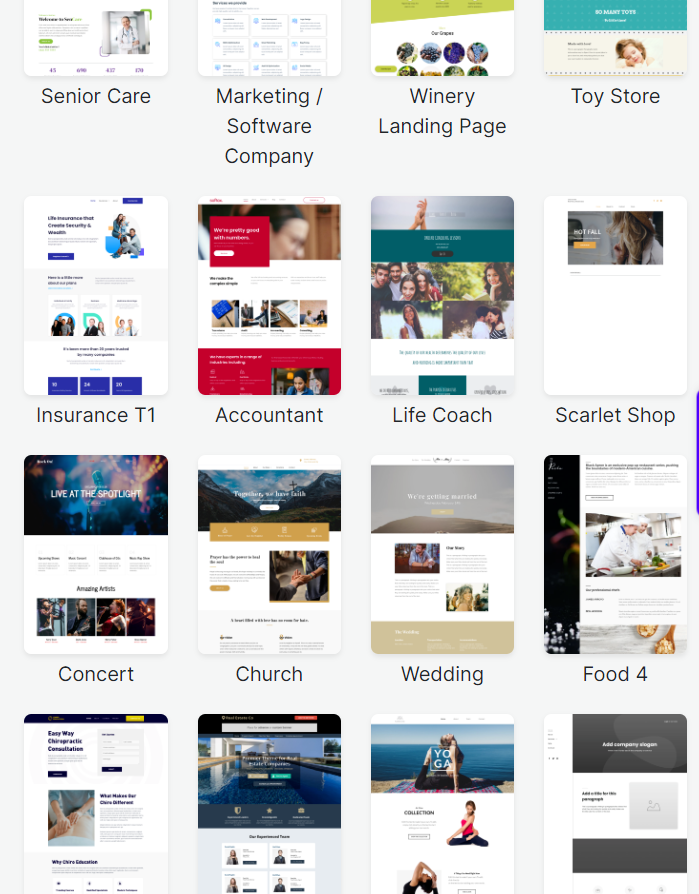
Snapps.ai is a drag and drop website builder that offers the necessary tools you need to create a self published author website. This platform has tools like Snapps Widgets, which lets you drag-and-drop elements related to books, writing, and literature. Snapps also has personalization rules that you can use to inform website visitors and readers on regular updates. The personalization rule lets you select an icon like a “Notification” sign to direct visitors on the latest news they’ll receive from you. What’s great about Snapps is it offers different website templates for specific niches and industries.

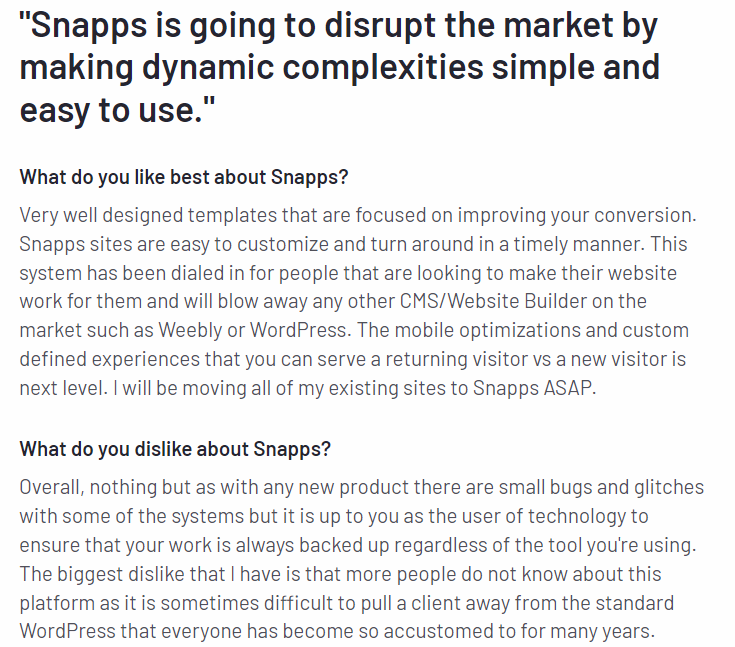
You may find yourself being too comfortable in using Snapps compared to the first website builder you’ve been using. Snapps stands out as you can build a simple self published author website faster with its pre-built templates. This platform is highly-recommended for those who have no website-building experience. Although, it’s normal to feel frustrated and overwhelmed while learning Snapps as a beginner. You can always find additional training sources to help you with your website-building skills.
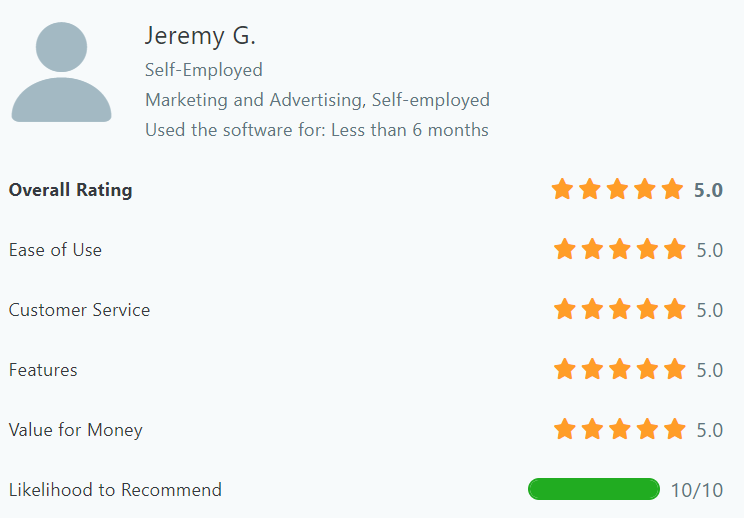
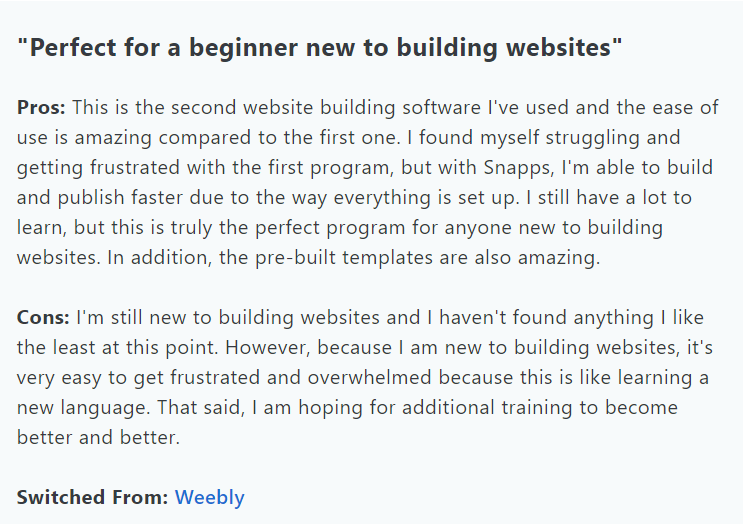
2. WordPress
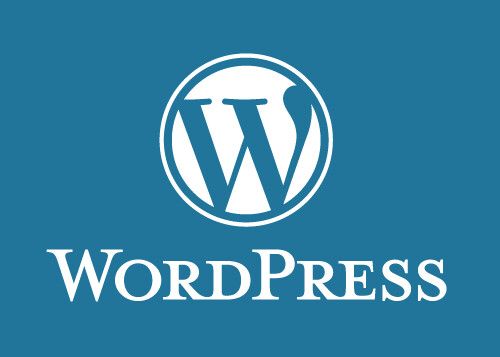
WordPress is an open-source software to help you modify features for your author website. It’s a well-known website builder that offers free tools in creating sites like blogs, portfolios, social networks, ecommerce stores, and membership sites. WordPress has a specific page in selecting pre-made templates for writers and self-published authors. Choose from a variety of high-quality and minimalist templates to increase website visitors.
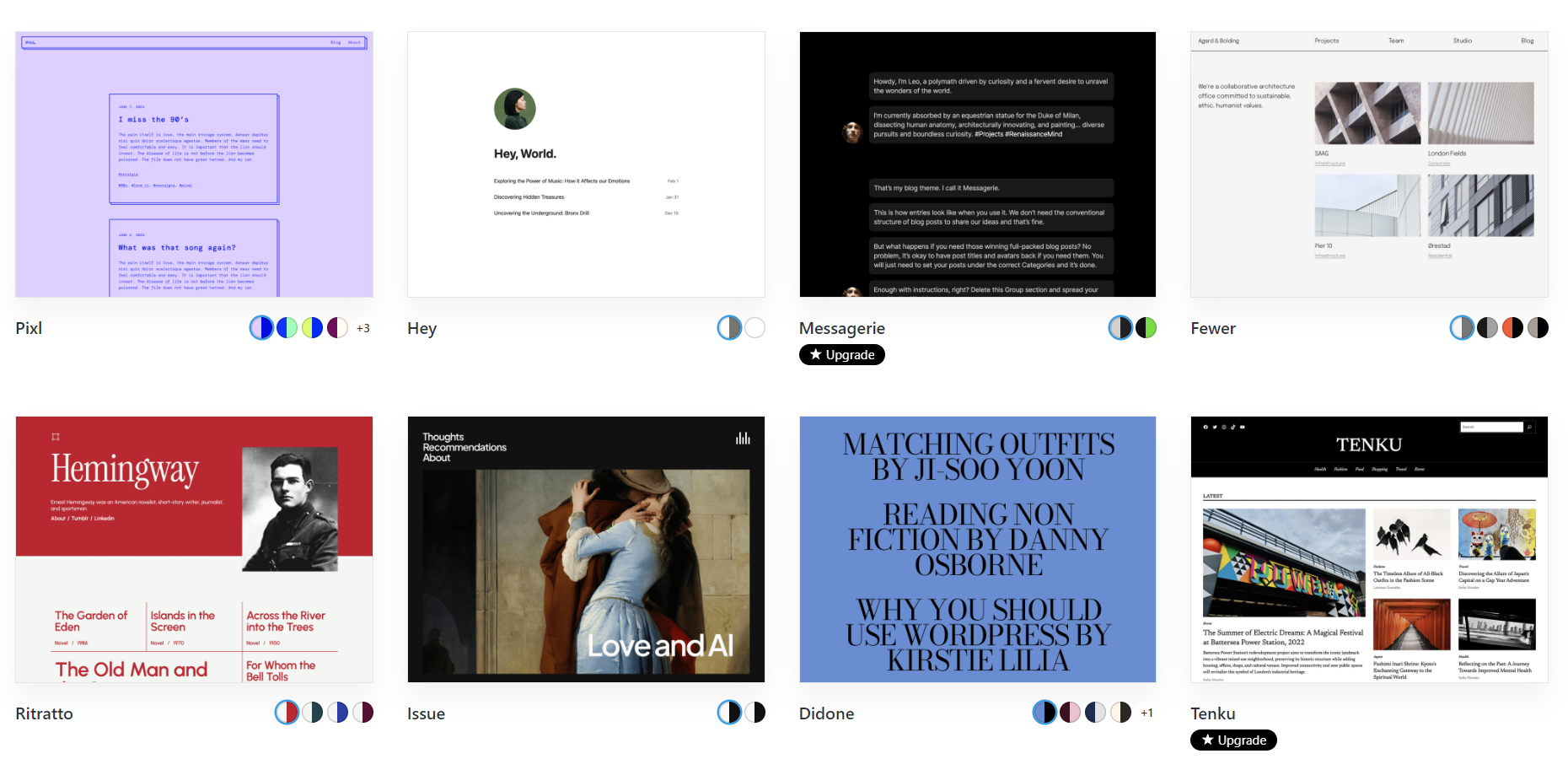
WordPress provides efficient use for users who engage in web development software and CMS. You can sell online services with the use of WooCommerce Plugin from WordPress. Build stunning websites in just a few hours or work on building posts, articles, and pages.
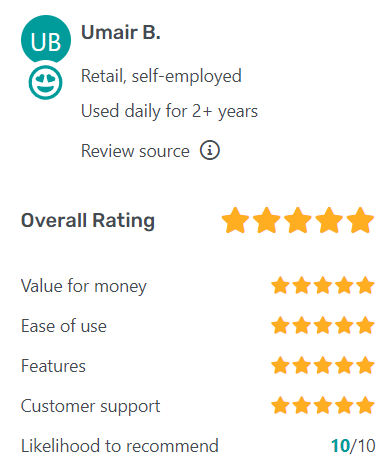

3. Wix

Wix is a well-known no-code website builder specifically designed for small businesses and even aspiring individuals in building an author website. From building your personal blog, to improving it into a professional one that catches the curiosity of readers. It offers scheduling options so you can schedule updates on new book releases. The screenshot below is an example of an author website template built in Wix. You can easily include high-quality images to advertise your first book.
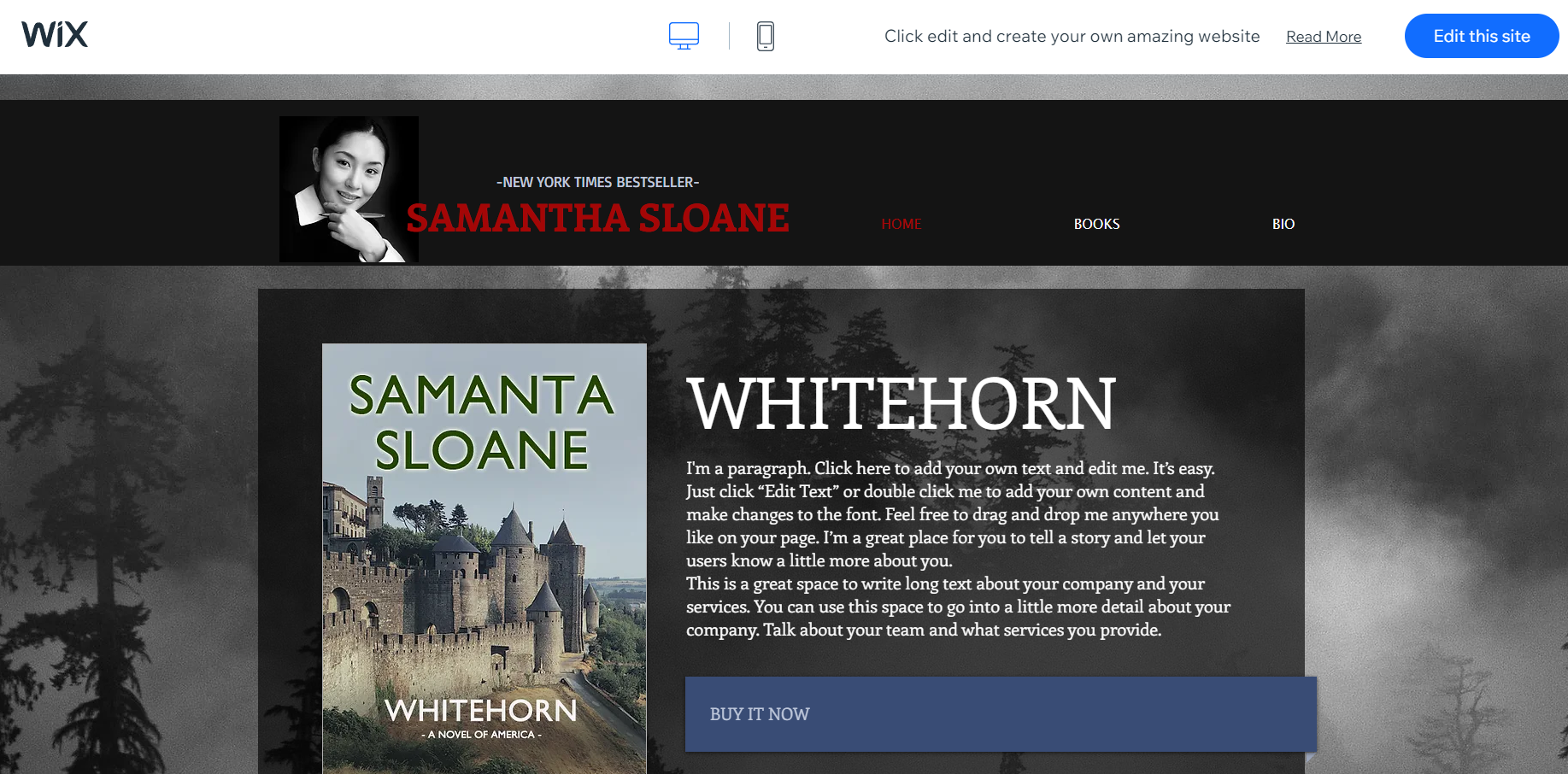
You can use Wix for several years for professional purposes. It has a wide range of features that can help you improve your website-building skills. Their ability to create AMP pages is efficient. It makes pages load faster on mobile devices, something that website visitors would definitely benefit from. Wix also has 24?7 customer support to help you with any technical issues and answer questions.
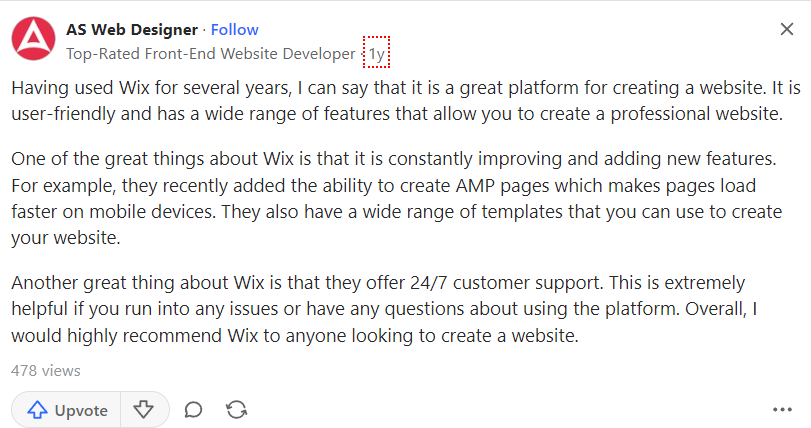
4. Squarespace

Squarespace is known for offering minimalist pre-made templates which can suit your author website’s needs. This website builder offers customization tools and lets you build an online store. Squarespace also lets you register your own custom domain name. This is crucial when you want to change your site’s URL into something personalized and aligned with your target audience.


Site Starters posted a Squarespace Review on YouTube and discussed its advantageous features. The platform offers stylish design and use-friendly business options. Therefore, it’s often recommended for e-commerce or portfolio websites. Squarespace offers storage space suited for artists and writers in creating blogs. If you want to work on bigger projects for your writing career, Squarespace is the place to be. This platform is user-friendly for beginners who are looking for unique designs for their author website.
5. Ghost

Ghost is an open-source platform for creating blogs and newsletters, specifically designed for improving author websites. This platform offers modern tools, letting you publish your writing content successfully. With hundreds of custom themes, you can even build your custom design forms scratch to match your branding. The screenshot below is an example of potential designs you can choose in building your author website.
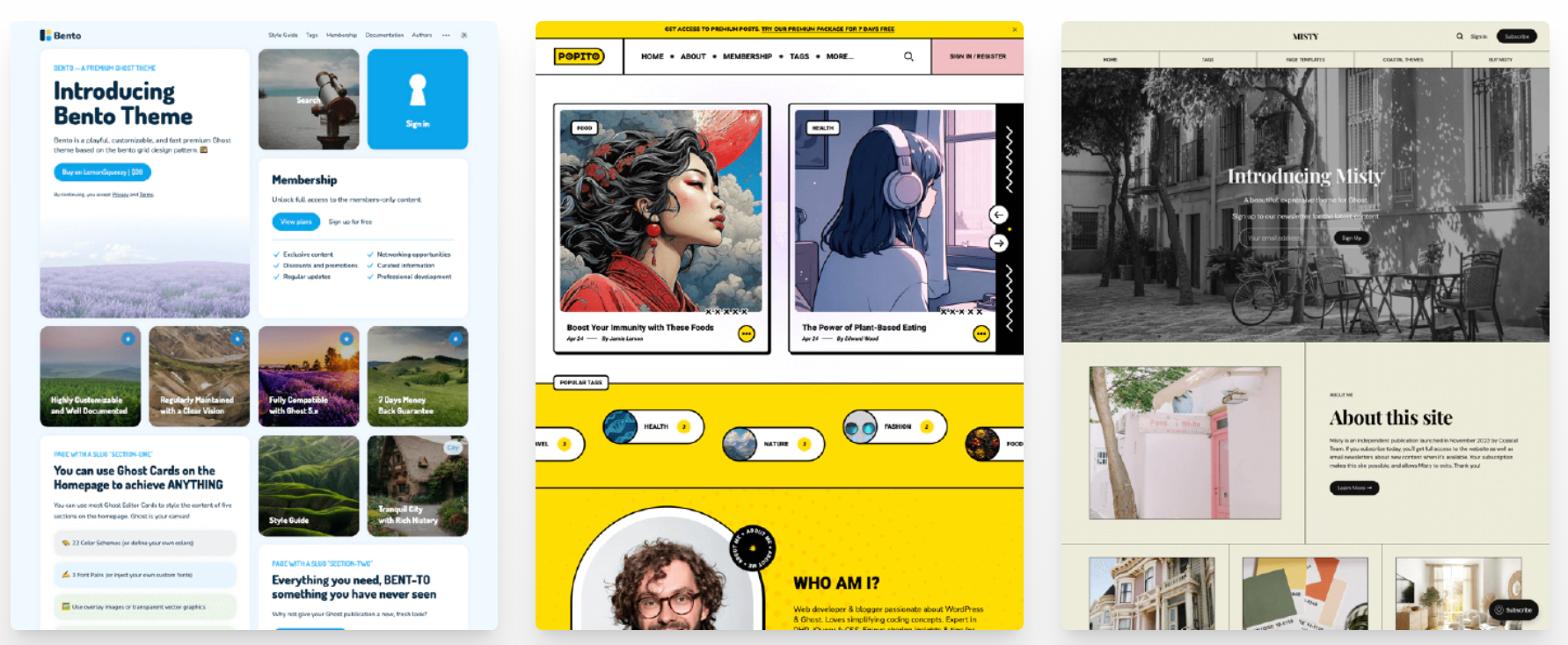

Dave Swift on YouTube shared his experience in switching from WordPress to Ghost. If you’re looking for a place to host your writing blog and offer reader subscriptions, consider trying Ghost. This platform prioritizes convenience for users if you don’t want to deal with any server issues. You’ll get to receive a successful running website in no time. In including posts and pages, you can make collections to make your blog or newsletter more organized.
6. Dorik

Dorik is an AI-generated website builder that can help you create an author website within minutes. This platform lets you create engaging blog posts and landing pages. What’s great about Dorik is it supports multiple languages, which is beneficial if you’ll publish a book to a global audience. Of course, Dorik offers SEO tools like image optimization, helping your author website rank higher on search results.
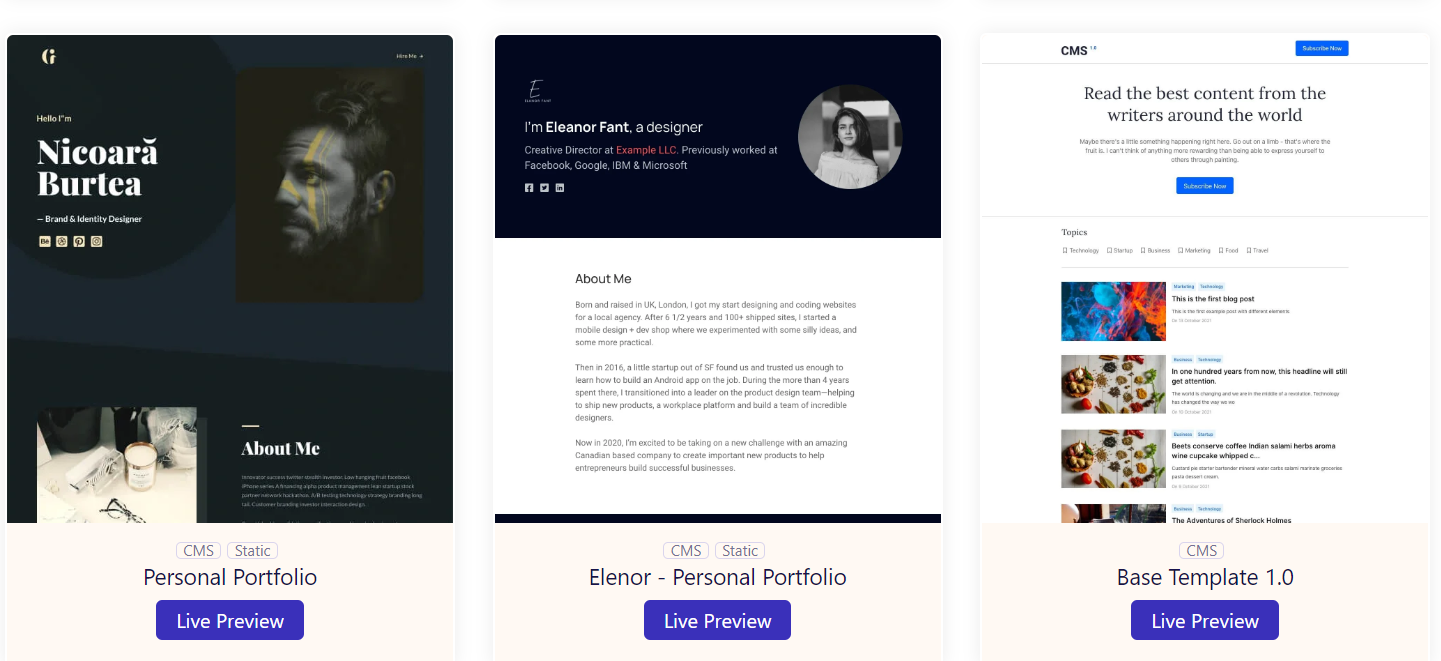
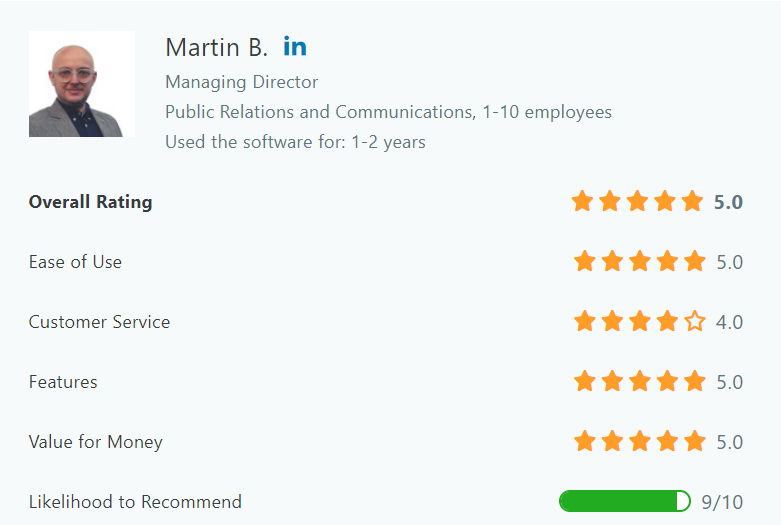
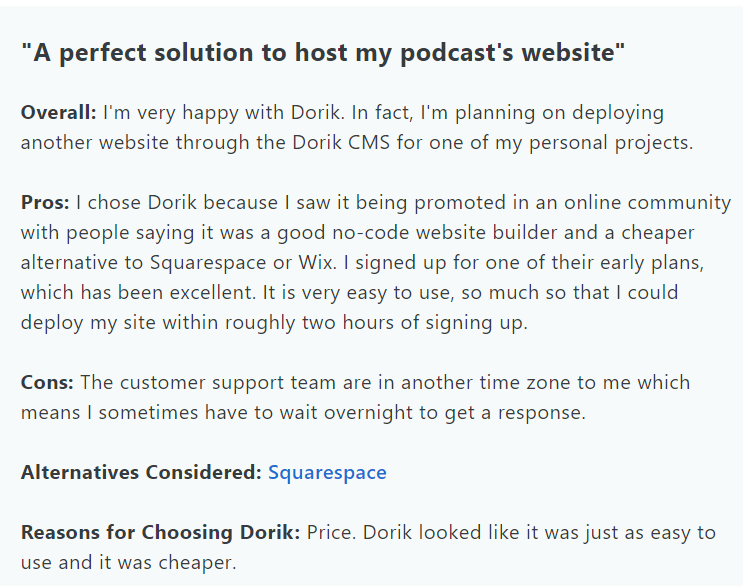
7. Weebly

Weebly is a well-known website builder that offers customizable web page designs to grow your target audience through your author website. This platform offers free customization tools, with a detailed guide on how to build a website as a beginner. With Weebly, you can engage in in-person events and establish a community for book lovers. Find the right circle of people where you can advertise your works and share story ideas.


CyberNews posted a Weebly review on YouTube to determine if it’s still worth-using. The theme library of Weebly looks modern, despite having limited templates to choose from. You can select what colors, fonts, and structures you want to have in your website. Also, you can add extra features like social feeds and SEO tools. These extra features help more users to discover your author website and check your works.
What Are the Essential Pages to Include in a Website Builder for Authors?
1. Home Page
The home page is the page that visitors would first see when they search your website. Make your home page organized, simple, and creative. Include the needed sections like contact information, about the author, book page, and newsletter. Also, design your home page according to the theme of the book you’re selling. If it’s a book about space, design the page with black and white colors, galaxies, or stars.
2. Newsletter Page
A newsletter page isn’t primarily a component of an author website, but it can boost brand reputation. Many authors include a specific page for newsletter signup forms. This opens an opportunity for website visitors to subscribe to an author’s latest book release and other updates.
A newsletter is a huge advantage for you as an author to communicate directly with readers. Update your readers on what you’re currently writing, even if you send one newsletter per month. Ask about their insights about writing, reading, and sharing book recommendations. You can even offer discounts and giveaways for loyal subscribers.

3. About Page
The “About Page” includes important information about the author such as their education, relevant experience, personal stories to share, and hobbies. In the informative page, you can introduce yourself in written or video format. Talk about how you’re passionate about reading books. Tell a short version of the story on how and why you got into writing. Don’t forget to include a Call to Action telling visitors to subscribe to your blog or newsletter and follow you on social media.
4. Contact Page
The contact page should include all contact information where your readers can reach you. Include your phone number/s, email address, social media pages. A contact page is crucial so readers, visitors, and the media can do interviews, offer collaborations, and invite you as a guest speaker. Provide a form linked to your work email address. In this way, visitors wouldn’t have to leave your website and you’ll get to directly receive their questions.
5. Book Page
You can include a book page if you’ve written more than one book. Don’t only include snippets of book shots. Instead, include the synopsis, reviews, audio clip, or even relevant resources from the book. Including this information helps readers with buying decisions as they’ll get an overview of what a specific book’s all about.
Do Website Builders for Authors Support Multiple Languages for International Audiences?
Yes, website builders for authors support multiple languages for international audiences. Each website builder easily lets you translate content, customize language, and add new languages. The more readers discover your author website, the more engagement and sales you’ll make. Including multiple languages should work well with the right platform.
Multilingual websites usually have CMS-based multilingual support. WordPress offers a WordPress Multilingual plugin with many options. Have a link at any page to the translated page to switch back and forth.

But if you’re not using a website builder, build the site then load the relevant content using different translations. Have each language version organized in folders in chunks of HTML and use JQuery to load relevant languages.
Do Authors Need Websites?
Yes, authors need websites for readers to get updates and ask questions. Having a website as an author is essential for brand creation. You’ll also need a website if you’re a newbie who wants to show your works to your potential readers.
Some authors on Reddit posted their experience in having a website for their career. One author gets 4-5k visits on their website. They post their webnovels and short stories, advertise published works, and write SEO-optimized blogs. As a result, this generated a lot of sales for the author, allowing them to give incentives to website visitors.
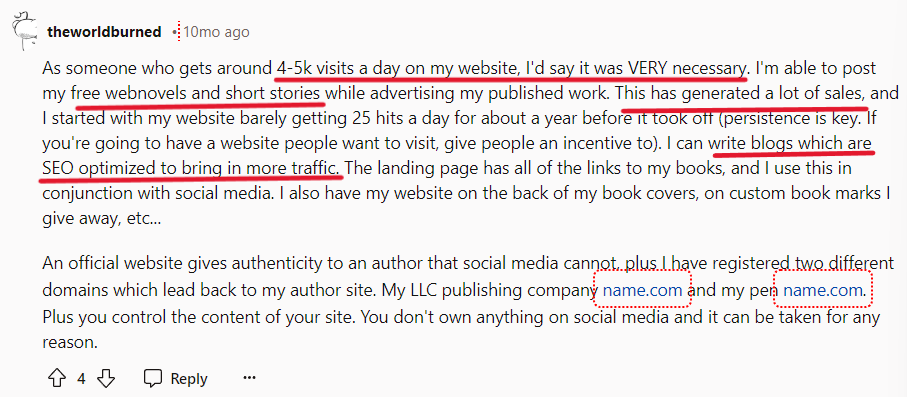
Another author mentioned the advantage of having a website that appears on Google search results. When they Google their name, it automatically identifies them as a “writer”. Google can show book cover images and a direct link to the author’s website. The content of the author’s website includes their social media links and newsletter sign up.

In the viewpoint of the readers, having an author’s website is important to get updates and for professionalism. One Reddit user prefers not to go through an author’s social media when waiting for a new book release. Instead, they would go to an author’s website and sign up in their newsletter.

Another reader views an author’s website as an “official source”. This means getting information about tours, articles, and future releases. Personally, they wouldn’t follow an author on Facebook using a personal account. Instead, they prefer to stay anonymous due to reasons like job searches and student spying.

A web developer also shared their insights about authors needing a website. If you want to build your brand, it needs to stay relevant and competitive. A website is a one-stop shop for bio information, book information, and an author’s social media accounts.
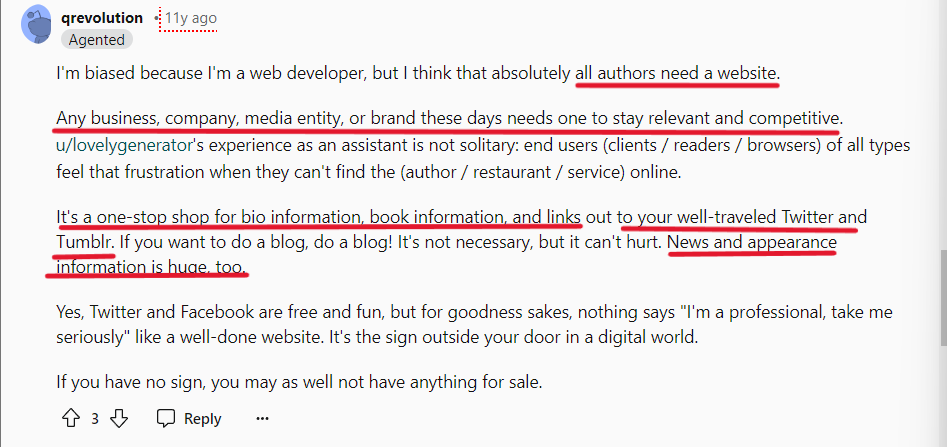
When Should I Create My Author Website?
You should create your author website before publishing your book. Build an early following or find your target audience so you’ll know where to market your work. Remember, your website is an important platform that can help you get higher sales. An author’s website is just as necessary as a point of contact. A reader that enjoys reading your book will find ways to look for your official website to contact you.

Starting early in creating an author’s website is also for advertising purposes. You can include your website link at the end page of your first book so readers will know where to find you.
Your website can also be your vantage point in publishing a book. Andy Weir, the author of “The Martian”, had his own website. This consisted of his blog and short stories. His modest website allowed him to start publishing chapters of a novel “in the making”. As a result, intrigued readers convinced him to publish it on Amazon as an eBook.


Should an Author Website Have a Blog?
An author website should have a blog to maintain credibility and communicate with readers. Having a blog is useful if you write about a topic where people might be interested in reading. One Reddit user wrote an article after doing a GoodReads giveaway. The article consisted of the exact costs, facts, how many readers they got, promos, and how it was ineffective. Eventually, their article received thousands of views. Although it didn’t get readers for the author, it did get visitors on their website.
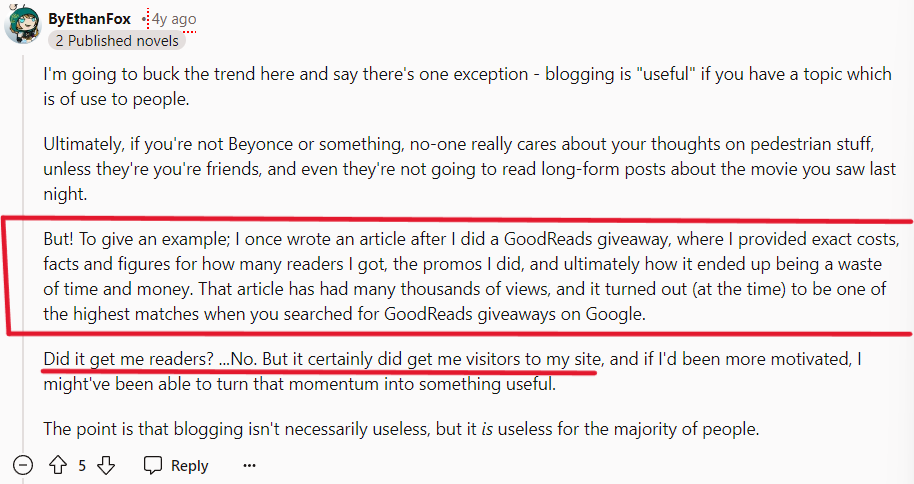
It’s important to stay consistent and continue writing for your blog out of habit. You can do regular posting on book releases and talk more about writing. Authors would have a blog simply because they like to write. Therefore, having a blog on an author website isn’t a major requirement.

A Reddit user followed an author who has a blog on their site. The author wrote mainly about his personal life, specifically drunk thoughts. These things are the ones you usually tell to a therapist or close friend, so the Reddit user found it odd since they visit the site for the books.

How to Write an Author Bio for a Website?
- Keep it short but attention-striking - Your author bio must be short but attention-striking so readers can keep on reading. It’s not necessary that a bio must consist of 100 words. Even if you’re writing a novel, a short bio is already substantive. Get straight to the point and don’t go jumping from one description to another.
- Write for your target audience - Write for your target audience means knowing how to address potential readers when you make an author bio. Your bio should resonate with potential readers through using the right approach, tone, and language. Associate your personal experience in writing your works to what the readers are expecting.
- Write in third person - Write in third person to make your author bio professional and trustworthy. Instead of using a subjective tone like, “I’ve written this story…”, use third person to make your bio authoritative.
- Provide relevant experience - Provide relevant experience through telling your journey in writing, education, culture, and personal background. You can also include any relevant experience related to the story you’re writing.
- Show your personality - Showing your personality is like treating your readers as your friends. Your author bio must provide assurance to your readers that they can trust you as an author. This doesn’t mean to be brutally transparent in your bio. Instead, show you’re really interested in the work you do. If your book’s about romance, talk about the essence of love. If you’re writing a history book, share your thoughts as an educated individual.
- Proofread your author bio - Proofreading your author bio before posting it is necessary to avoid making a bad impression. Always look back on sentence structure and make sure all personal information is correct. Also, double check for grammatical errors.
What is the Best Website Builder for Authors?
The best website builder for authors is Snapps.ai. It’s never too late to start your writing career journey with the help of Snapps.ai’s drag and drop tools. This website builder offers customization and personalization tools to organize your author website template. You can add a separate page for your books, contact information, and newsletter. Snapps.ai has widgets so you can drag and drop different elements tailored to the theme of the stories you write. What’s good about Snapps.ai is it’s easy to use and can help you create a website within minutes.
Snapps.ai is easy to use and can help you create a website within minutes.
Recent Articles
Our Support Heroes Are Here For You
Don’t waste time on tedious manual tasks. Let Automation do it for you. Simplify workflows, reduce errors, and save time for solving more important problems.



